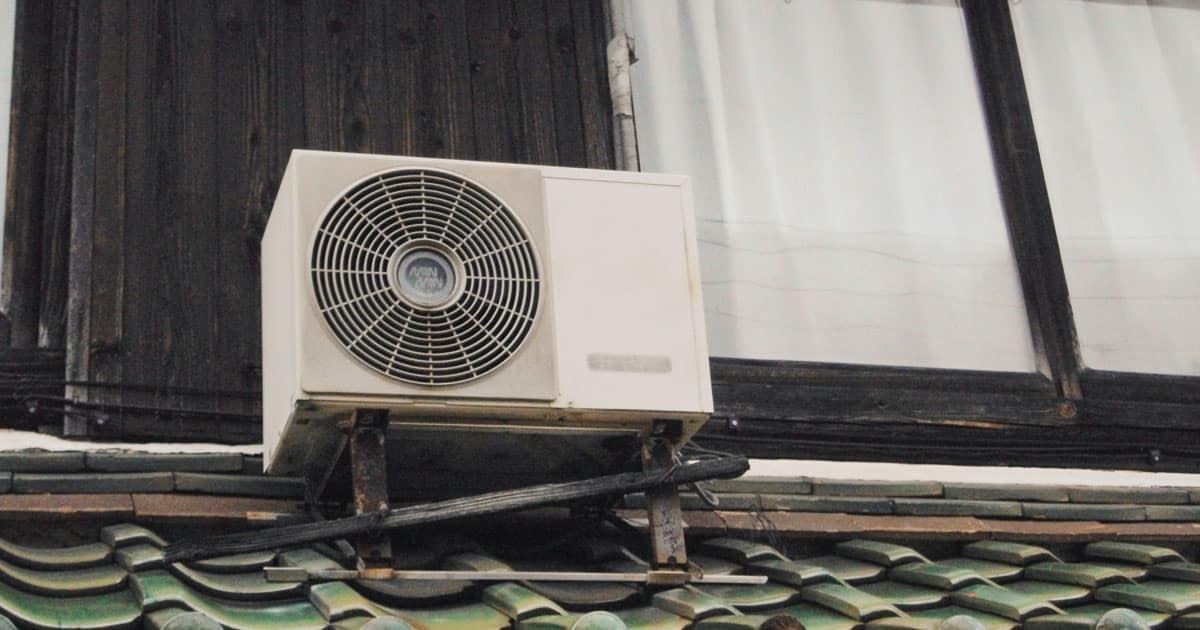Are you concerned about the energy efficiency of your home? Heat pumps could be the answer. They have become increasingly popular in recent years due to their ability to deliver efficient heating and cooling solutions while also helping homeowners conserve energy costs.
But how do they work, and are they really as efficient as touted? In this blog post, we’ll explore heat pumps – what they are, how they work and why many people consider them an energy-saving solution for homeowners who want to reduce their heating and cooling bills. You can also check this article for more details on the lifespan of a heat pump in normal settings.

What is a heat pump and how does it work?
A heat pump is an energy-efficient device that makes use of the natural heat transfer of the air to provide cooling or heating. Typically, a heat pump system includes an outdoor unit that contains a compressor and a fan and an indoor unit with an evaporator coil, which absorbs and releases heat.
Air passes through both units in order to allow for constant exchange of temperatures as well as humidity between the two. The most important thing to remember about how a heat pump works is that it does not generate heat energy, but rather moves existing energy from one environment to another. This method helps reduce electricity bills since it requires less power than traditional methods such as furnaces or air conditioners.
How efficient are heat pumps compared to other heating methods like furnaces and boilers?
Heat pumps are one of the most efficient, cost-effective ways to heat your home. Heat pumps use less energy than traditional furnace or boiler systems because they move and transfer heat instead of generating it. Unlike furnaces that burn fuel to generate heat, or boilers that release stored heated water into radiators, heat pumps extract existing heat from the air and the ground outside to warm your home.
Heat pumps are designed to be most efficient in mild climates, but modern designs are able to function efficiently even in very cold temperatures. Heat pumps can also be used as a cooling system when switched into reverse mode, making them a great all-round solution for year-round comfort.
What are the benefits of using a heat pump in your home or business establishment?
Investing in a heat pump for your home or business establishment can offer a number of advantages. Heat pumps are an energy efficient means of controlling the temperature within the property, providing both heating and cooling, depending on what is required.
They provide flexibility and comfort, working to create a consistent climate inside the building. Heat pumps are also environmentally friendly because they generate minimal to no carbon emissions, making them a great sustainable option for any property owner looking to reduce their overall carbon footprint.
Finally, they don’t require costly maintenance and can last up to 20 years without needing significant upkeep. With numerous benefits and cost-effective solutions, installing a heat pump in your home or business is definitely worth considering. You can get in touch with heat pump installation Halifax if you’re looking to have a heat pump installed.
How can you tell if a heat pump is a right choice for your needs and budget constraints?
Heat pumps are definitely an energy-efficient and cost-effective way to heat and cool your home. But before making the decision to install a heat pump, it is important to consider your needs, budget constraints, and local climate.
In climates that experience cold winters and hot summers, a traditional air source heat pump may be the right choice. If you need supplemental cooling in summer or back-up heating in winter for certain rooms, a mini-split ductless system could provide an even more efficient option.
Make sure to get an estimate from a qualified professional and factor in estimated installation costs into your decision as well as long-term operating costs of the equipment over the life of the product. A comparison of all elements will help with making the best decision for your home heating and cooling needs.
What should you consider when choosing a heat pump installer or contractor to do the job for you?
When it comes to selecting a heat pump installer or contractor for your home or business, ensure that you are getting the best bang for your buck. Start by researching their qualifications and certified credentials. Check their reviews and make sure there’s proof of completed projects that show quality performance.
Of course, budget is an important factor too, but be wary of the cheapest option as this could indicate poor service. Consider longevity and warranties; some companies offer additional coverage even after completion.
Finally, make sure that your installer or contractor will take care of timely follow-ups and customer service just in case any adjustments need to be made down the line. With these factors taken into account, you’re one step closer to finding the right heat pump installer or contractor that fits your needs!
Endnote
In short, heat pumps are very efficient as long as they’re properly serviced and maintained. As with any mechanical system, however, there are potential problems that can arise which may impact the efficiency of your heat pump.
If you have any concerns about the performance of your heat pump, consult your local HVAC company to schedule maintenance or servicing. With proper care, your heat pump will provide years of comfortable, efficient operation for your home or business.
